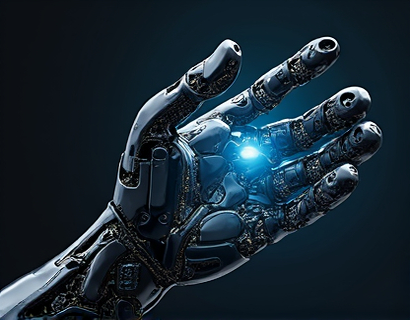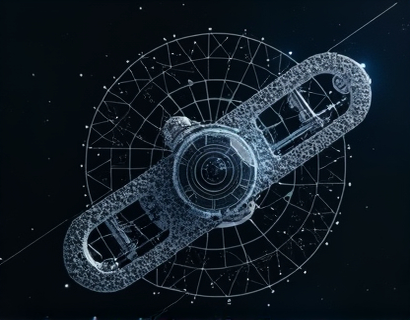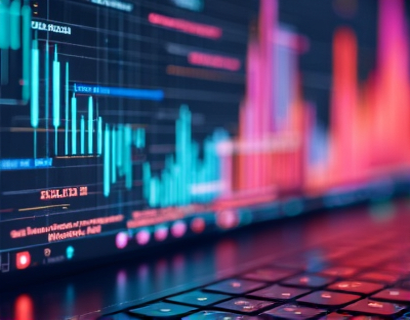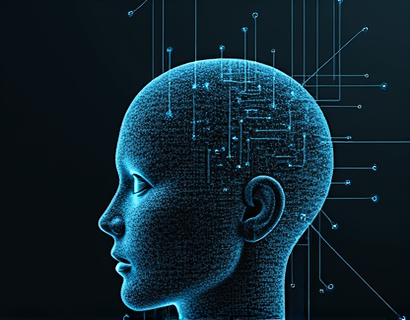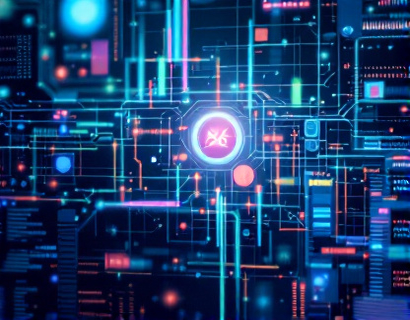Decentralized Organization Dynamics: Mastering the Software Stack for Universal Governance and Efficiency
In the rapidly evolving landscape of digital governance and decentralized systems, the concept of universal decentralized organizations has gained significant traction. These organizations leverage advanced software to redefine traditional hierarchical structures, promoting a more democratic, transparent, and efficient approach to governance and operations. This guide delves into the intricacies of how sophisticated software can transform the creation and functioning of universal decentralized organizations, focusing on the software stack that underpins these innovations.
Understanding Decentralized Organizations
Decentralized organizations, often built on blockchain technology, operate without a central authority, distributing control among network participants. This decentralization fosters a more inclusive and resilient system, where decisions are made collectively and transparently. The software stack plays a crucial role in enabling this decentralized model, providing the tools and frameworks necessary for seamless collaboration and governance.
The Role of Software in Decentralized Governance
The software stack for decentralized organizations encompasses a range of technologies and protocols designed to facilitate governance, communication, and operational efficiency. At the core of this stack are blockchain platforms, smart contracts, and decentralized applications (dApps). These components work together to create a robust framework that supports decentralized decision-making and execution.
Blockchain Platforms
Blockchain platforms serve as the foundational layer for decentralized organizations. They provide a secure, immutable ledger for recording transactions and data. Popular platforms like Ethereum, Binance Smart Chain, and Polkadot offer varying degrees of scalability, security, and interoperability, catering to different organizational needs. The choice of blockchain platform significantly impacts the organization's ability to execute smart contracts and manage decentralized applications effectively.
Smart Contracts
Smart contracts are self-executing contracts with the terms of the agreement directly written into code. They automate and enforce the rules and processes within a decentralized organization, reducing the need for intermediaries and minimizing the risk of human error. By automating governance processes, smart contracts ensure that decisions are executed transparently and consistently, enhancing trust among participants.
Decentralized Applications (dApps)
Decentralized applications extend the functionality of blockchain beyond simple transaction processing. dApps provide user-friendly interfaces for interacting with the underlying blockchain, enabling users to participate in governance, vote on proposals, and manage organizational resources. These applications are crucial for fostering engagement and ensuring that the decentralized organization remains accessible and user-centric.
Enhancing Collaboration and Transparency
The software stack for decentralized organizations is designed to enhance collaboration and transparency, two pillars of successful decentralized governance. Decentralized networks facilitate real-time communication and data sharing among members, breaking down silos and fostering a more collaborative environment. Transparency is achieved through the immutable nature of blockchain, allowing all participants to view and verify transactions and decisions.
Collaboration Tools
Collaboration tools built on decentralized platforms enable members to work together seamlessly, regardless of their geographical location. These tools include decentralized messaging platforms, project management systems, and collaborative document editing. By leveraging these tools, organizations can maintain high levels of productivity and ensure that all members are aligned and informed.
Transparency Mechanisms
Transparency mechanisms are integral to building trust within decentralized organizations. Blockchain's inherent transparency ensures that all actions and decisions are recorded and visible to all participants. Additionally, decentralized organizations can implement auditing tools and dashboards to provide real-time insights into the organization's operations, financial health, and governance processes. This level of transparency not only builds trust but also promotes accountability.
Optimizing Operational Efficiency
Beyond governance and collaboration, the software stack for decentralized organizations is designed to optimize operational efficiency. By automating routine tasks and streamlining processes, these organizations can reduce costs and increase productivity. The integration of advanced technologies such as artificial intelligence (AI) and machine learning (ML) further enhances efficiency by providing predictive analytics and automated decision-making capabilities.
Automation and Workflow Optimization
Automation plays a critical role in improving operational efficiency within decentralized organizations. By automating repetitive and time-consuming tasks, such as data entry, report generation, and compliance checks, organizations can free up resources for more strategic activities. Workflow optimization tools built on the blockchain ensure that processes are executed in a predetermined and transparent manner, reducing delays and errors.
Resource Management
Effective resource management is essential for the sustainability and growth of decentralized organizations. The software stack includes tools for managing digital assets, such as tokens and NFTs, as well as traditional resources like funding and human capital. Decentralized finance (DeFi) protocols and tokenized governance models enable efficient allocation and distribution of resources, ensuring that the organization's goals are met with optimal resource utilization.
Challenges and Considerations
While the software stack for decentralized organizations offers numerous benefits, it also presents several challenges that must be addressed. Scalability, security, and user adoption are key considerations that organizations must navigate to succeed in the decentralized landscape.
Scalability
Scalability remains a significant challenge for blockchain-based decentralized organizations. As the number of users and transactions increases, the blockchain must be able to handle the load without compromising performance. Solutions such as layer 2 protocols, sharding, and off-chain computations are being developed to address scalability issues, ensuring that decentralized organizations can grow and accommodate a larger user base.
Security
Security is paramount in decentralized systems, as the loss of funds or data can have severe consequences. The software stack must incorporate robust security measures, including secure coding practices, regular audits, and multi-signature wallets. Additionally, educating users about best practices for securing their assets is crucial for maintaining the integrity of the decentralized organization.
User Adoption
Gaining widespread user adoption is essential for the success of decentralized organizations. The software stack should prioritize user experience, making it easy for newcomers to join and participate in the organization's activities. Intuitive interfaces, comprehensive documentation, and community support can help overcome the learning curve associated with decentralized technologies.
Future Trends and Innovations
The landscape of decentralized organizations is continually evolving, with new technologies and innovations emerging to enhance governance, collaboration, and efficiency. Some of the key trends to watch include the integration of Web3 technologies, the development of cross-chain interoperability, and the adoption of advanced AI and ML algorithms.
Web3 and the Metaverse
The convergence of blockchain and Web3 technologies is paving the way for the metaverse, a decentralized virtual world where users can interact, collaborate, and conduct business. Decentralized organizations can leverage Web3 to create immersive and interactive experiences, opening up new avenues for engagement and value creation.
Cross-Chain Interoperability
Cross-chain interoperability is becoming increasingly important as different blockchain ecosystems seek to connect and collaborate. Standards and protocols like Polkadot's XCM and Cosmos' Inter-Blockchain Communication (IBC) are facilitating seamless interactions between disparate blockchains, enabling decentralized organizations to leverage the strengths of multiple platforms and expand their reach.
AI and ML in Decentralized Governance
The integration of AI and ML into decentralized governance can significantly enhance decision-making and operational efficiency. AI-driven analytics can provide insights into user behavior, market trends, and organizational performance, enabling data-driven decisions. ML algorithms can automate complex tasks, such as fraud detection and risk assessment, further improving the organization's resilience and effectiveness.
Conclusion
Mastering the software stack for universal governance and efficiency is essential for the success of decentralized organizations. By leveraging advanced technologies such as blockchain, smart contracts, and decentralized applications, these organizations can redefine traditional governance models, fostering a more inclusive, transparent, and efficient environment. As the landscape continues to evolve, embracing innovation and addressing challenges will be key to unlocking the full potential of decentralized systems.









